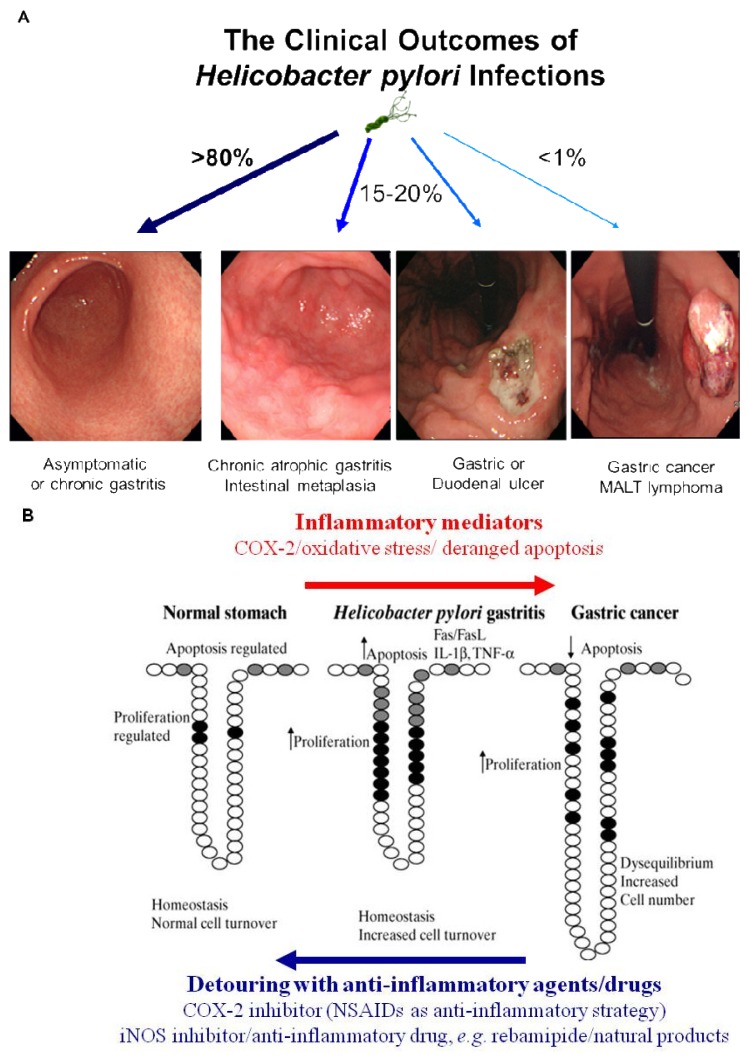Figure 3.
Detouring the road to H. pylori-associated carcinogenesis through alleviating gastric inflammation. (A) In spite of IARC definition that H. pylori infection is class I carcinogen, more than 80% among population infected with H. pylori remains asymptomatic, about which no clear explanation has not been forwarded. On the other hand, H. pylori infection is apparently associated with the emergence of precancerous lesion and some gastric malignancy. Host genetic polymorphisms, environmental factors, H. pylori strains, and host immune response might affect the outcome, but the common fact is that chronic gastric inflammation is the fundamental basis for H. pylori-associated gastric carcinogenesis. (B) Multiple lines of evidence had suggested the detouring the unpleasant journey to H. pylori-associated gastric carcinogenesis seems to be the effective strategy to prevent H. pylori-associated gastric cancer, for which COX-2 inhibitor, antioxidants, anti-inflammatory drug, phytoceuticals, and others had been documented.

